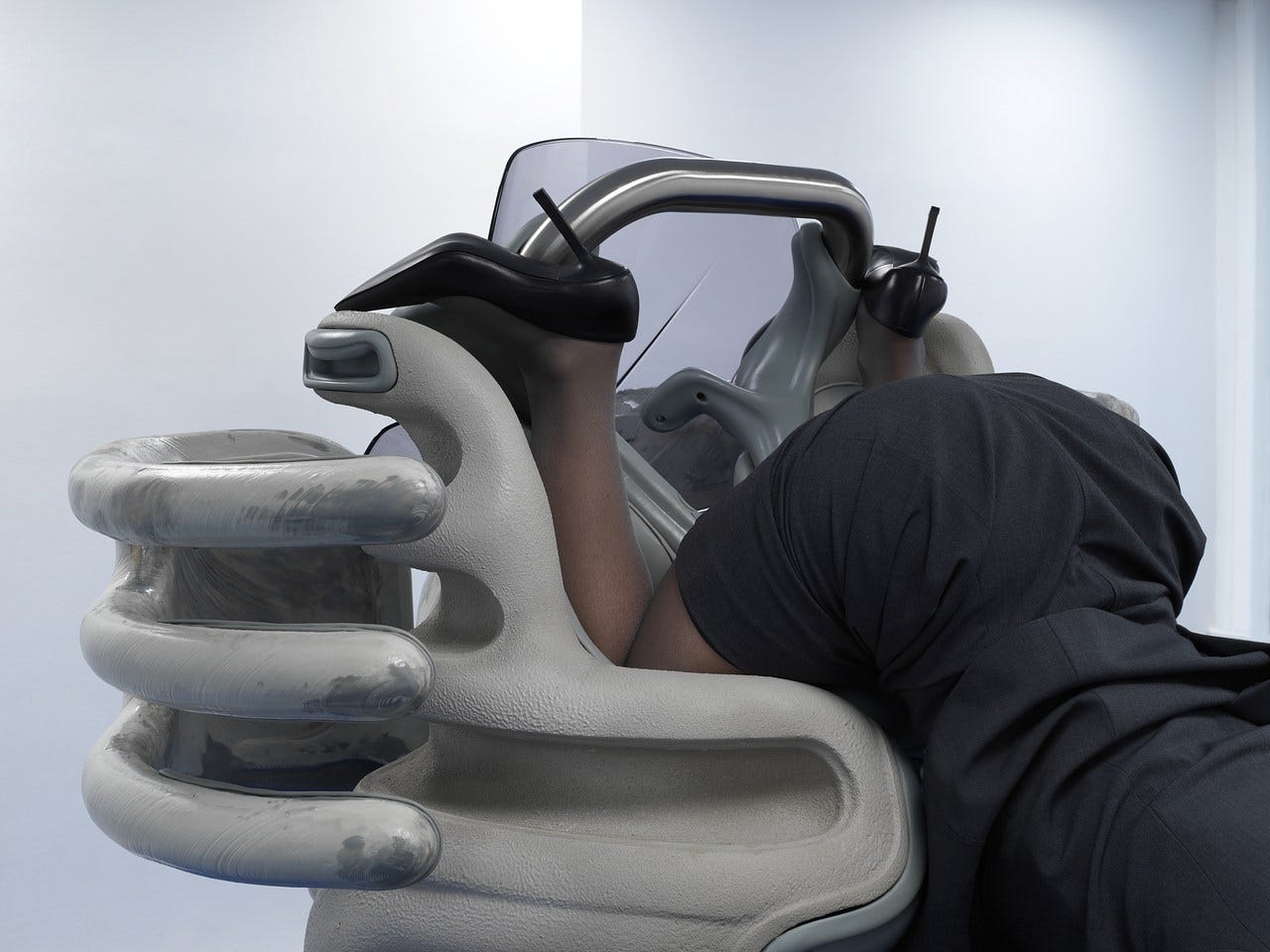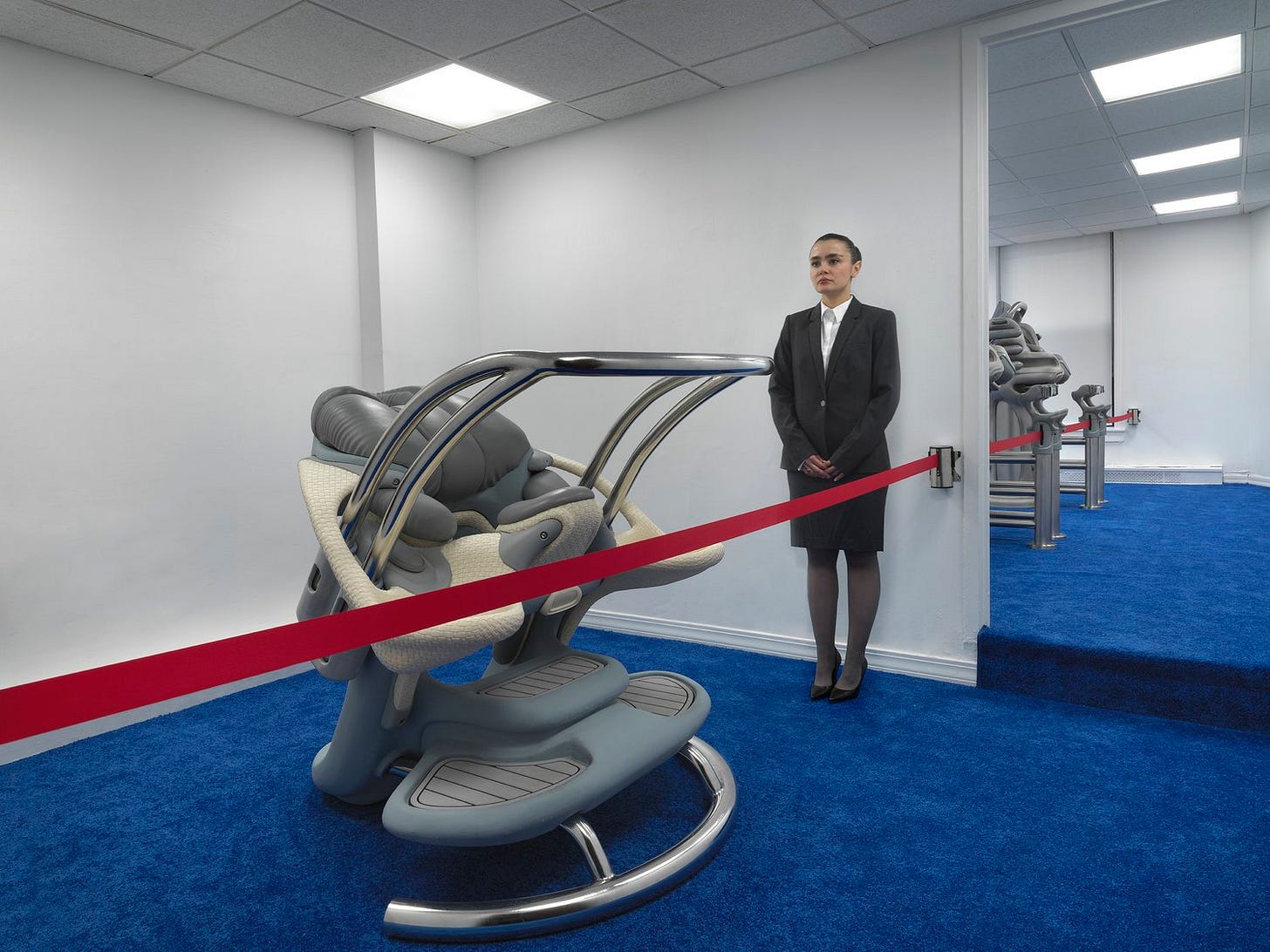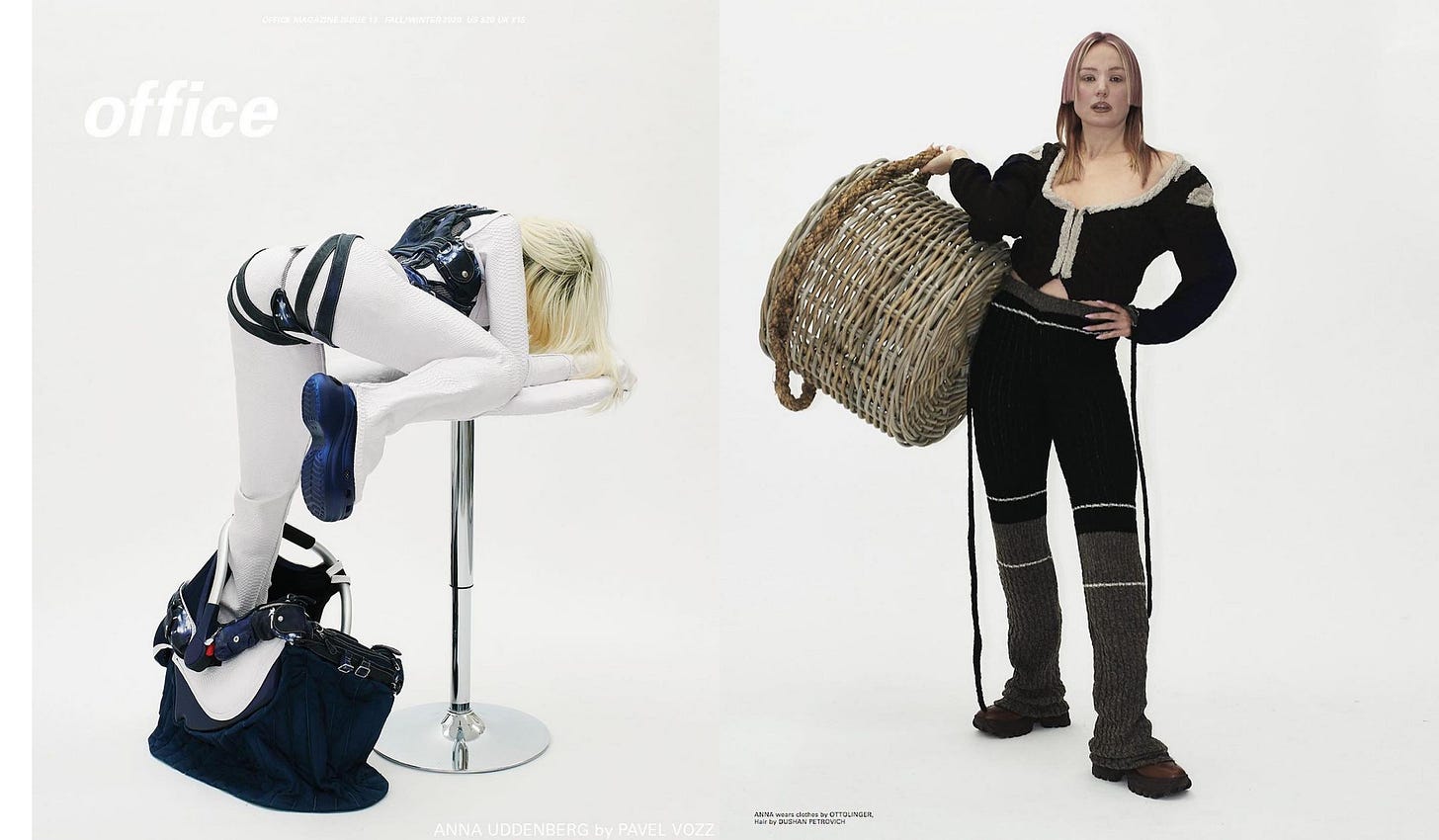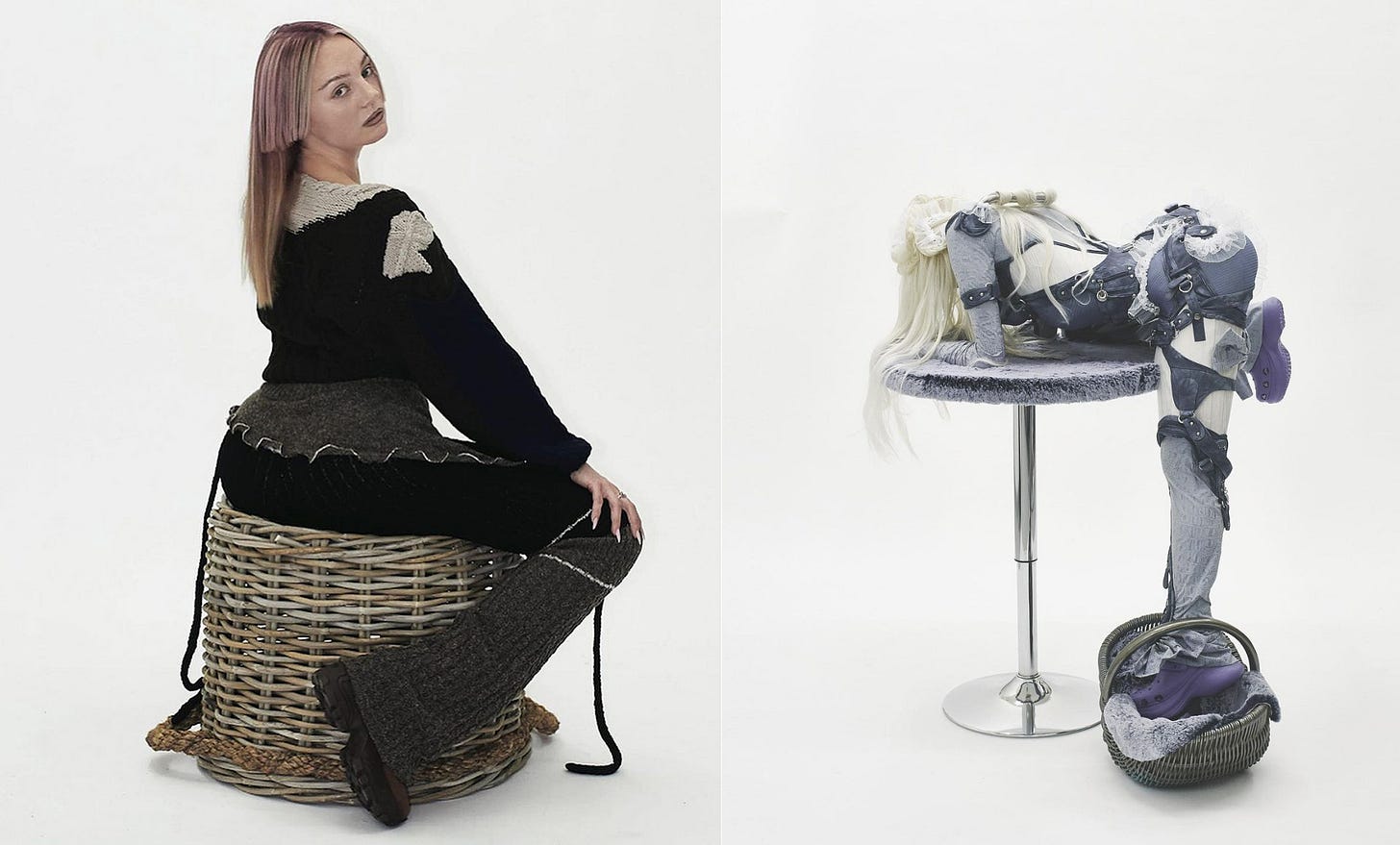The performances at Anna Uddenberg’s latest show, Continental Breakfast at Meredith Rosen Gallery, reminded me of the dominatrix flight attendant pitch for Air France in Emily in Paris. Same zeitgeist, but more nuanced, for a narrowed audience. The Swedish-born artist is forever incorporating scripts, fads, commodification, and control in her work, but (Mistress) Uddenberg always wears the trend, it never wears her.
Uddenberg has been experimenting for the last few years with both figurative sculptures and these furniture-like pieces, which sculpturally script ass-up postures similar to her female forms. Back when she debuted this more functional approach at her House of Gaga solo, I commissioned Emily McDermott for Vulture’s SEEN series to speak with Uddenberg about the shift. And for a later cottagecore series, I wrote this cover story, below, for Office Mag issue 13, that’s never been online, at least til now:
Made up of synthetic hair, acrylic nails, knock-off bags, and faux skins, the figures dominating Anna Uddenberg’s new pair of sculptures — Climber (secret skin) and Climber (peasant pull) (both 2020) — suggest the performative subjectivity of consumer metaphysics. In 1983, Barbara Kruger coined the dictum: “I shop therefore I am.” It’s even more true today than it was back then, material accumulation is the default mode of self-identification. We broadcast our personality via a colorway or a fit, a fabric or an accessory. But it’s more than that. As capitalism continues to infiltrate every aspect of our way of being, we are no longer just defined by our consumption, but we’ve mutated into products ourselves. Tiqqun’s Preliminary Materials of the Young-Girl (originally published in France in 1999 and translated into English in 2012) outlines the total nature of this transformation: “The Young-Girl is never plastic enough for her taste.”
Swedish-born Uddenberg started investigating gender, sexuality, and self-staging while studying at Städelschule in 2009, first experimenting with performance and video before discovering sculpture was her preferred medium. Following grad school, she settled in Berlin, finding a wider audience in 2016 when her sculpture titled Journey of Self Discovery became one of the most Instagrammed works of the DIS-curated Berlin Biennale — you’ve probably seen it, the figure is ass-up on an ottoman, a selfie stick pointed at her booty. In many of Uddenberg’s sculptures the figures blend seamlessly into things: bistro tables and baby carriers, bicycle helmets and wheelie suitcases. One’s ass crack is a zipper. Another has jutting out of her back the sort of grab bar you’d find in a handicapped bathroom. They are cyborgian shopping victims, generic hotties turned human furniture — an assemblage of hyper-contemporary references layered on top of each other, giving a plastic form to the invisible forces driving our submission to consumerist culture. Collapsing signifiers of taste, class, authenticity, and impersonation, Uddenberg shows how “what’s fake and what’s not isn’t even relevant anymore.”
Cottagecore is the latest subcultural trend to make its way into Uddenberg’s universe. Climber (peasant pull) features an injection of wicker and frills into a world otherwise dominated by synthetic surfaces and ergonomic design. Uddenberg explains that Crocs, which show up over and over again in her work, “are obviously a type of clog, which has a peasant/folk connotation. I was spinning off that.” The result is an amalgamation of new-age clogs and old-timey aesthetics, a collision of decorative innocence and sadistic hair pulling. The figure, whose locks are tangled in the metal bar protruding from her back, stands with one foot on an old-fashioned-looking basket, giving her a boost to climb onto a tall bistro table. “She’s literally like a social climber,” says Uddenberg, explaining the pose both figures take. “I was thinking about the flimsy furniture at art fairs, and how she’s climbing up this shaky table. It’s like at these fairs, everything feels a little cheap, but there’s a lot of money involved.”






